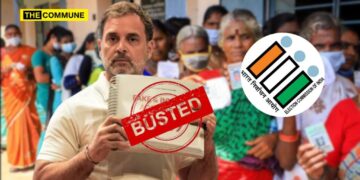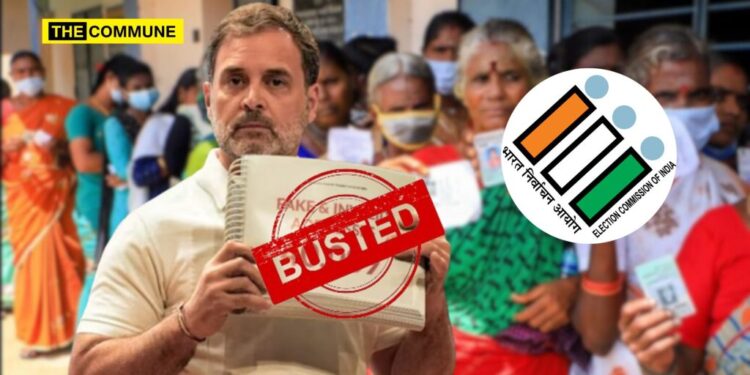The Election Commission dismisses Congress’s ‘vote theft’ claims, calling them factually incorrect and reiterating its commitment to free and fair elections.

Election Commission Calls Congress’ ‘Vote Theft’ Allegations “Factually Incorrect”
Context and Political Fallout
Amid mounting political tension, the Indian National Congress, spearheaded by Rahul Gandhi and other opposition leaders, staged a protest in New Delhi on August 11, 2025, alleging that recent electoral roll revisions—particularly Bihar’s Special Intensive Revision (SIR)—amounted to “vote theft.” Around 300 MPs marched from Parliament to the Election Commission (EC) headquarters. They accused the EC of manipulating voter lists to disenfranchise certain communities. The march was halted by police at barricades, and several leaders, including Rahul and Priyanka Gandhi, were briefly detained.
EC’s Fact-Check Verdict: A Firm Rebuttal
Responding quickly, the Election Commission issued a fact-check statement, branding the “vote theft” allegations as factually incorrect. The EC published documents and video links to demonstrate transparency in executing the Bihar SIR exercise. This included video testimonials from party representatives—including Congress, RJD, and CPI—affirming their inclusion in the roll revision process . The Commission also cited regular meetings held with stakeholders before, during, and after the draft roll publication and released a daily bulletin tracking the process . “Pure Electoral Rolls strengthen democracy,” the EC declared in its public rebuttal.
Rahul Gandhi’s Claims and EC’s Detailed Challenge
Rahul Gandhi’s allegations included specific instances—such as irregularities in Karnataka and a case involving a 70-year-old voter registered twice via Form 6—suggesting deliberate manipulation. The EC countered this, stating the document presented in the presentation was not issued by any polling officer, and clarified that the concerned individual had voted only once as per official records.
Moreover, after the EC’s rebuttal, Rahul Gandhi was asked to either substantiate his claims with valid documents or apologize publicly. The commission referenced similar past unsubstantiated claims—like the 2018 Kamal Nath case—and urged that such allegations should not become recurring political tropes.
Political Ripples and Party Responses
The BJP swiftly criticized Rahul Gandhi’s stance, accusing him of spreading misinformation and trying to erode public faith in India’s key democratic institutions . BJP leaders challenged him to either resign from office if he lacked faith in the EC, or present tangible proof to back his claims.
Within Congress, the fallout from the controversy also led to internal strife. In Karnataka, Cooperation Minister KN Rajanna resigned following disagreements over the party’s “vote theft” stance, underlining the mounting internal tensions.
Broader Implications for Electoral Trust
The Commission’s firm statement underscores its commitment to maintaining confidence in the electoral process. By publishing procedural records and testimonial evidence, it sought to showcase transparency—even amid fierce political scrutiny.
For democracy to thrive, mechanisms like SIR must be credible and accountable. While political parties have every right to demand transparency, they must also base serious allegations on verifiable evidence—not rhetoric. Otherwise, such claims risk undermining public trust in the electoral system itself.
READ ALSO…….Security Tightened for Kapil Sharma in Mumbai Following Canada Café Attack”2025















 Categories
Categories









